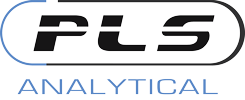RESIDUAL SOLVENT TESTING
Residual solvent testing is the process to detect and quantify solvents that may remain in drug products after the manufacturing process. As a matter of fact, residual solvents used in the developmental process of drugs are not completely removed after the procedure. The presence of residual solvents in drug products can pose a significant risk to patient safety if the solvents contain toxic components. Hence, according to guidelines by regulatory bodies, residual solvent testing is a critical component of assurance and quality control in our industry.
Residual solvent testing typically involves analytical testing such as:
- Gas chromatography
- Liquid chromatography
PLS Analytical laboratories have some of the most advanced procedures and equipment for quality control testing that ensures an effective residual solvent testing method.

Our state-of-the-art laboratories are fully equipped to handle formulation studies and quality testing for each product
In addition to detecting and quantifying residual solvents, our experienced team of scientist also conduct the identification of solvents not included on a product's label or in the manufacturing process, if necessary. We highly ensure that only safe and effective products are released to the market following proper FDA and EMA guidelines. Our team has developed and validated common in-house method quantification of major residual solvents for better results.

Benefits of Residual Solvent Testing
In simple terms, residual solvent testing is a part of quality control that ensures product safety. However, there are other key benefits as well:
Apart from quality assurance, PLS Analytical focuses on residual solvent testing as a way of continuous upgradation and innovation in the pharmaceutical manufacturing industry.

Pharmaceutical

Chemical

Cosmetic, Health and Beauty






